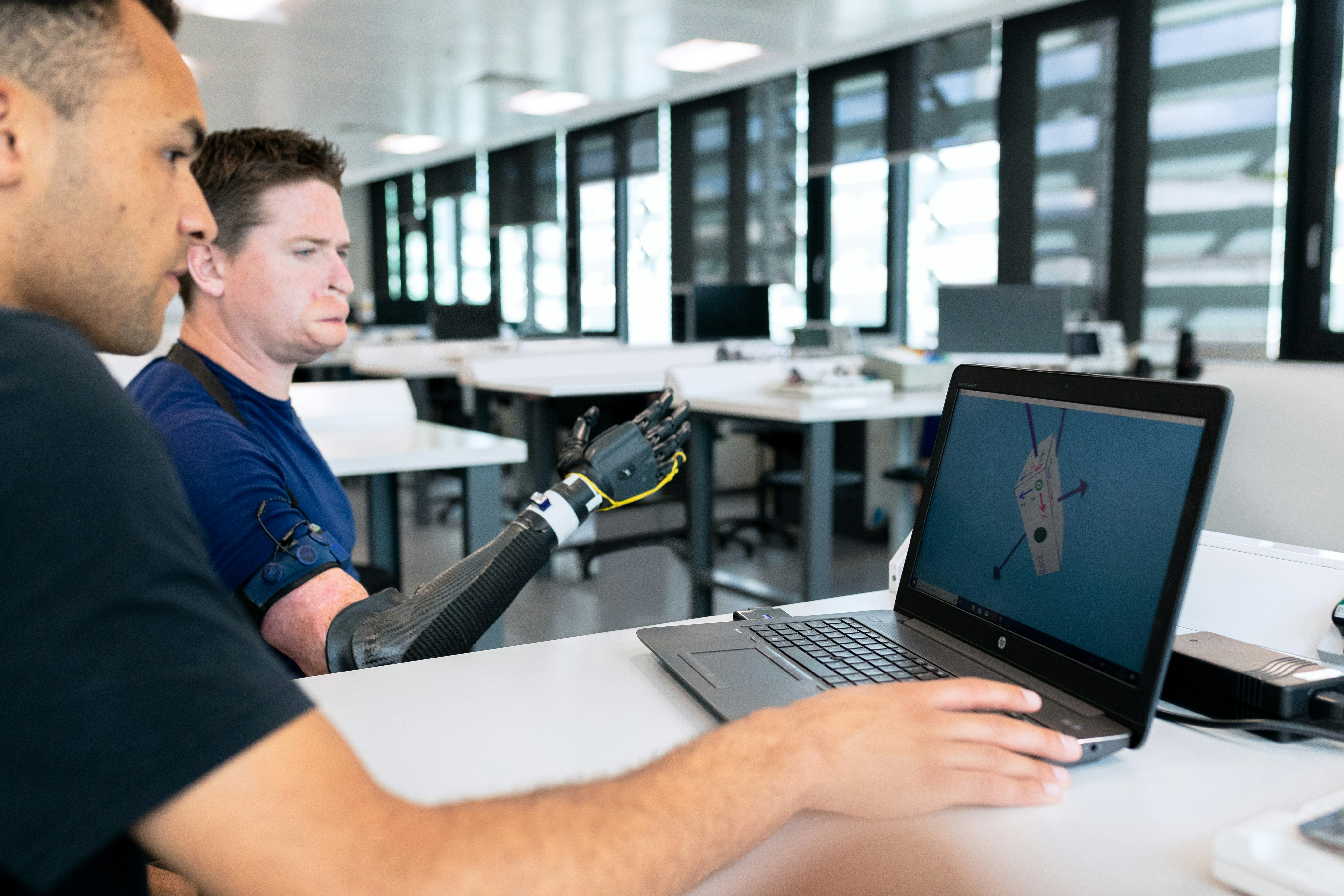The AI Whisperers: Personalized AI Assistants Transforming Training
In an era where technological advances are reshaping workplaces, the evolution of AI tools is steering employee training and upskilling into unprecedented territories. Personalized AI assistants are not just enhancing training; they are revolutionizing how employees engage with learning in real-time, resulting in swift adaptation and growing expertise. This transformation enables companies to close skills gaps, improve morale, and better equip their workforce for the challenges of tomorrow. Let’s delve deeper into how personalized AI assistants are reshaping employee training and upskilling.
The New Landscape of Employee Training
The traditional model of employee training, often characterized by rigid schedules and standard materials, is rapidly becoming outdated. Businesses today are navigating a landscape dominated by rapid technological advancements and shifting workforce expectations. According to a report by the World Economic Forum, almost 85 million jobs may be displaced by automation and AI by 2025, necessitating enhanced upskilling initiatives for the existing workforce. This changing job market has prompted organizations to seek innovative training solutions that cater to the diverse needs of their employees.
Embedded within this need for innovation is the concept of personalized AI assistants—intelligent systems tailored to provide customized learning experiences. By understanding individual employee strengths, weaknesses, and learning preferences, these AI systems offer adaptive content and training paths, thereby enhancing the overall effectiveness of the training process.
The Mechanics of Personalized AI Assistants
How do personalized AI assistants work? These advanced tools utilize vast datasets, machine learning algorithms, and predictive analytics to deliver real-time insights into employee performance and progression. By analyzing participation patterns, knowledge retention, and feedback, AI assistants can:
-
Tailor Learning Experiences: Personalized AI can assess an employee's skills and recommend specific training modules suitable for their career aspirations and current job roles.
-
Foster Continuous Learning: Instead of waiting for the annual training period, these tools promote a culture of continuous improvement by facilitating micro-learning opportunities that are readily available at the point of need.
-
Enhance Engagement: By utilizing gamification techniques and personalized notifications, AI assistants can engage employees in a meaningful way, making learning feel less tedious and more like a shared journey towards growth.
As companies increasingly adopt these personalized learning tools, they are witnessing significant improvements in employee engagement and retention rates. A recent survey highlights that organizations employing AI-driven personalized training saw a 30% increase in employee productivity.
Real-Time Upskilling: The Future of Training
One of the most compelling advantages of personalized AI assistants is their capacity for real-time upskilling. Consider a customer service representative who encounters a complex client issue during a call. Instead of placing the call on hold, AI-powered tools can deliver immediate information and suggested responses, helping the employee navigate the situation successfully.
This immediate access to information not only enhances problem-solving capabilities but also instills confidence in employees. Such opportunities for real-time learning are particularly advantageous in industries characterized by rapid changes and evolving customer expectations. The capacity to learn on the go is increasingly becoming an indispensable skill in modern workplaces.
Building Trust Through Personalized AI Tools
AI tools, particularly those focusing on personalized learning, must also address the issue of trust. Employees can be skeptical about whether AI assistants are designed for their benefit or merely for the organization's operational efficiency.
To establish trust, organizations need to be transparent about how they are utilizing AI to support employees. Ensuring user privacy and maintaining ethical standards while deploying AI tools can significantly improve employee perception. Furthermore, involving employees in the design and implementation phases of these AI systems can foster a sense of ownership and make them more receptive toward using these tools for their development.
Additionally, providing comprehensive onboarding and training for these tools will empower employees to leverage their full potential. Engaging storytelling about AI's benefits, alongside visible results, can help solidify this trust and reinforce the partnership between AI and the human workforce.
The Ethical Considerations of AI in Training
While the benefits of personalized AI tools are promising, the ethical implications deserve careful consideration. Organizations must navigate the delicate balance of utilizing AI without compromising individual privacy or perpetuating biases that may exist in training algorithms. Establishing ethical AI frameworks that prioritize fairness, transparency, and accountability is essential.
Organizations should implement fair data sourcing practices, ensuring that training datasets reflect the workforce's diverse demographics. Moreover, ongoing assessments of AI systems are crucial to identify and rectify any potential biases that may arise in training recommendations. This commitment to ethical AI usage not only protects employees but also enhances the organization's overall credibility.
Case Studies: Success Stories of AI in Employee Training
To illustrate the impact of personalized AI assistants in training and upskilling, we look at a few organizations successfully implementing these tools.
Case Study 1: Global Tech Company
A leading tech firm adopted personalized AI assistants to facilitate the onboarding of new employees. Customized onboarding pathways were designed based on prior experience, allowing new hires to engage with relevant materials at their own pace. This approach led to a 60% improvement in satisfaction scores among new employees, significantly reducing turnover rates.
Case Study 2: Fast-Food Chain
A well-known fast-food chain employed AI-driven chatbots to assist staff in mastering new culinary techniques and adhering to health regulations in real time. Throughout their shifts, employees could ask questions related to procedural updates, boosting the restaurant's compliance rate and enhancing the customer experience.
Case Study 3: E-Learning Platform
An e-learning platform integrated personalized AI features to recommend courses based on individual learning styles and career aspirations. By allowing learners to navigate through their personalized pathways, the platform experienced a 50% increase in course completion rates within a six-month period.
These case studies highlight the tangible benefits organizations can reap by investing in AI-powered personalized training tools.
The Future of Personalized AI in Employee Training
Moving forward, the possibilities for personalized AI assistants in employee training are boundless. As technology evolves, innovative features such as natural language processing, sentiment analysis, and emotional intelligence capabilities will further enhance these tools’ effectiveness. They will likely develop deeper insights into employees’ mental states and learning motivations, creating a more holistic approach to training.
Moreover, organizations will capitalize on using these tools to cultivate a growth mindset among employees. With the right incentives, personalized AI can foster curiosity and a hunger for learning, encouraging employees to take charge of their personal and professional development.
In conclusion, the rise of personalized AI assistants heralds a new era in employee training and upskilling. By leveraging these technologies, organizations can meet evolving employee needs while establishing an adaptive, engaging, and inclusive workplace culture.
Final Thoughts
The future of employee training lies in harnessing the power of personalized AI assistants to create enriched learning experiences. By prioritizing engagement, trust, and ethical considerations, businesses can pave the way for their workforce to thrive in an age defined by rapid change. Organizations that embrace this shift will not only enhance productivity but also prepare their employees for success in an increasingly complex work environment.
In the words of entrepreneur and author Sean McCabe, “We are what we repeatedly do. Excellence, then, is not an act, but a habit.” As we embrace AI tools in training, let’s cultivate the habits that drive excellence and innovation in our workplaces.
For additional insights on leveraging AI to enhance employee engagement and workplace culture, explore our posts on authentic collaboration through AI and emotional intelligence in the workplace!










